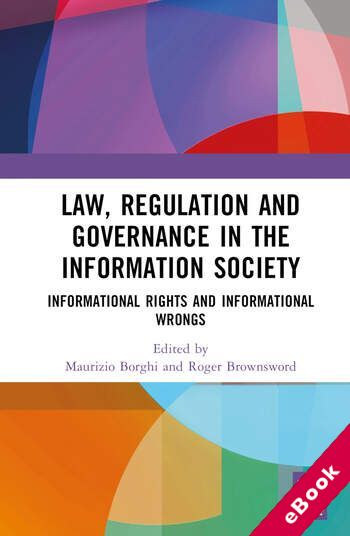We will be closed from 5pm Thursday 17th April for the Easter Bank Holidays, re-opening at 8.30am on Tuesday 22nd April. Any orders placed during this period will be processed when we re-open.

The device(s) you use to access the eBook content must be authorized with an Adobe ID before you download the product otherwise it will fail to register correctly.
For further information see https://www.wildy.com/ebook-formats
Once the order is confirmed an automated e-mail will be sent to you to allow you to download the eBook.
All eBooks are supplied firm sale and cannot be returned. If you believe there is a fault with your eBook then contact us on ebooks@wildy.com and we will help in resolving the issue. This does not affect your statutory rights.
This edited collection seeks to map the landscape of contemporary informational interests, to evaluate a range of recognised and putative rights and wrongs associated with modern information societies, and to consider how law, regulation, and governance should be deployed in response.
New technologies and new applications constantly disrupt our values, our framing of our world, and our sense of where we are and who we are. In our ‘information societies’, we entertain mixed hopes and expectations, as well as significant fears and concerns. At the root of these, there are a number of informational interests, on the basis of which certain rights are claimed and particular wrongs denounced. This book addresses these interests, considering them as relating primarily to the integrity of the informational eco-system, to the accessibility, accuracy, and authenticity of public information, and to our individual ability to control the outward and inward flows of information that relates directly to ourselves. Covering a wide range of subjects, the book’s interrogation of our contemporary information society is oriented around two questions: first, whether the information society in which we live is the kind of society that we think it should be and, second, if not, what we can reasonably expect law, regulation and governance to do in providing the basis for improving it.
This book will be of considerable interest to those working at the intersection of law and technology, as well as others concerned with the legal, political, and social aspects of our information society.